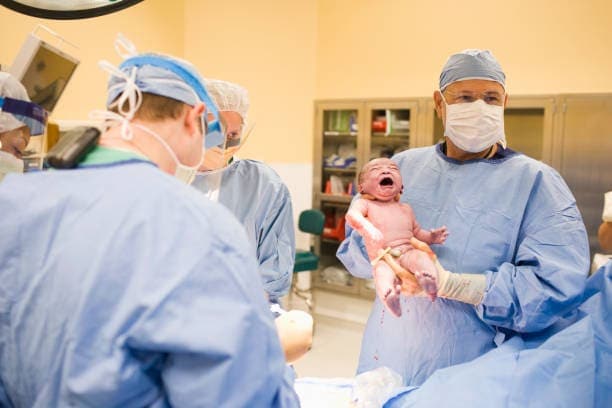Some women experience a very severe itching in late pregnancy. The most common cause of this is cholestasis, a common liver disease that only happens in pregnancy. Intrahepatic Cholestasis of Pregnancy (ICP) is a condition in which the normal flow of bile is affected by the increased amounts of pregnancy hormones. Cholestasis in pregnancy is more common in the last trimester of pregnancy when hormones are at their peak, but it usually goes away within a few days after delivery.
According to Cincinnati Children’s Hospital Medical Center, Cholestasis occurs in about 1 out of 1,000 pregnancies but is more common in Swedish and Chilean ethnic groups. Cholestasis is sometimes referred to as extrahepatic cholestasis which occurs outside the liver, intrahepatic cholestasis which occurs inside the liver, or obstetric cholestasis.
What Causes Cholestasis of Pregnancy?
Pregnancy hormones affect liver function, resulting in slowing or stopping the flow of bile. The gallbladder holds bile that is produced in the liver, which is necessary for the breakdown of fats in digestion. When the bile flow in the liver itself is stopped or slowed down, this causes a build up of bile acids in the liver which can spill into the bloodstream.
ICP is diagnosed when the total bile acids (TBA) or serum bile acids are measured at 10 micromol/L and above. Studies initially showed that this increase in bile acids was due to estrogen only, but recent research has found that progesterone may contribute just as much to this backup.
What Are the Symptoms of Cholestasis of Pregnancy?
- Itching, particularly on the hands and feet (often is the only symptom noticed)
- Dark urine color
- Pain in the right upper quadrant (RUQ), without gallstones
- Pale/Light coloring of bowel movements
- Fatigue or exhaustion
- Loss of appetite
- Depression
Less common symptoms include:
Who Is at Risk?
1 to 2 pregnancies in 1,000 are affected by cholestasis.
The following women have a higher risk of getting cholestasis during pregnancy:
- Women carrying multiples
- Women who have previous liver damage
- Women whose mother or sisters had Cholestasis or ICP
How Is Cholestasis of Pregnancy Diagnosed?
A diagnosis of cholestasis can be made by doing a complete medical history, physical examination, and blood tests that evaluate liver function, bile acids, and bilirubin.
The Society for Maternal-Fetal Medicine concurs that cholestasis of pregnancy should be diagnosed when the total bile acids (TBA) or serum bile acids are measured at 10 micromol/L and above.
How Will The Baby Be Affected If The Mother Is Diagnosed With Cholestasis?
Cholestasis may increase the risks for fetal distress, preterm birth, or stillbirth. A developing baby relies on the mother’s liver to remove bile acids from the blood; therefore, the elevated levels of maternal bile cause stress on the baby’s liver. Women with cholestasis should be monitored closely and serious consideration should be given to inducing labor once the baby’s lungs have reached maturity.
What Is The Treatment For Cholestasis Of Pregnancy?
The treatment goals for cholestasis of pregnancy are to relieve itching. Make sure you speak with your healthcare provider before taking any medications or supplements.
Some treatment options include:
- Topical anti-itch medications or medication with corticosteroids
- Medication to decrease the concentration of bile acids such as ursodeoxycholic acid
- Cold baths and ice water slow down the flow of blood in the body by decreasing the temperature
- Dexamethasone is a steroid that increases the maturity of the baby’s lungs
- Vitamin K supplements administered to the mother before delivery and again once the baby is born to prevent intracranial hemorrhaging
- Dandelion Root and Milk Thistle are natural substances that are beneficial to the liver (talk to your healthcare provider before taking these)
- Bi-weekly non-stress tests which involve fetal heart monitoring and contraction recordings
- Regular blood tests monitoring both bile serum levels and liver function
Treatment for cholestasis of pregnancy needs to be determined by your physician, who will take the following criteria into consideration:
- Your pregnancy, overall health, and medical history
- The extent of the disease
- Your tolerance for specific medications, procedures, or therapies
- Expectations for the course of the disease
- Your opinion or preference
Treatments that should not be used for cholestasis include:
- Antihistamines
- Aveeno and Oatmeal Bath
*There are conflicting views on using the medication Cholestyramine for the treatment of cholestasis. In the past, this medication was readily used to treat this condition, but some studies have shown that Cholestyramine may not be as effective as other treatments and potentially has some adverse side effects such as blocking essential vitamins like Vitamin K (a vitamin that is already deficient in women with cholestasis).
What are the chances of the mother getting cholestasis in another pregnancy?
It is nearly impossible to know whether a woman will experience cholestasis in future pregnancies. Some sources claim that women who have had cholestasis of pregnancy have up to a 90% chance of having this repeat in future pregnancies, but the research is not conclusive. If you plan on getting pregnant again, talk to your healthcare provider about steps you can take to promote a healthy pregnancy, or if there are any ways to prevent ICP.
Want To Know More? Read The Following Articles:
Compiled using information from the following sources:
1.William’s Obstetrics Twenty-Second EdF. Gary, et al, Ch. 50.
2.ICP Care
https://www.icpcare.org/for-providers/icp-overview/






